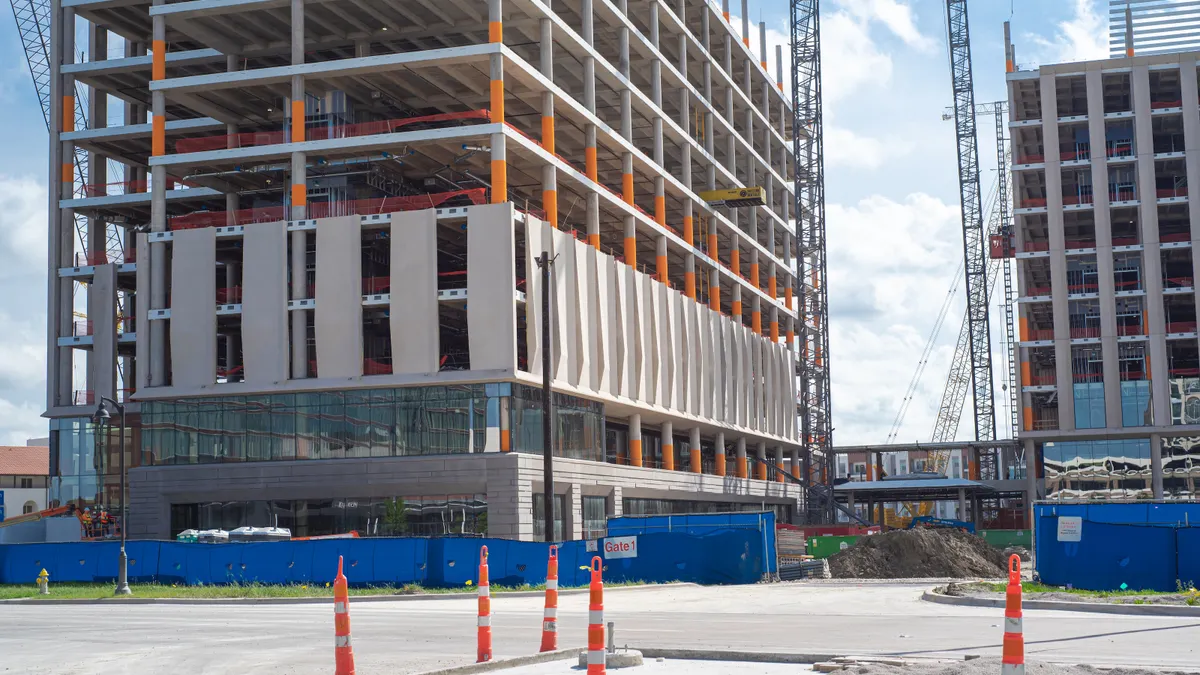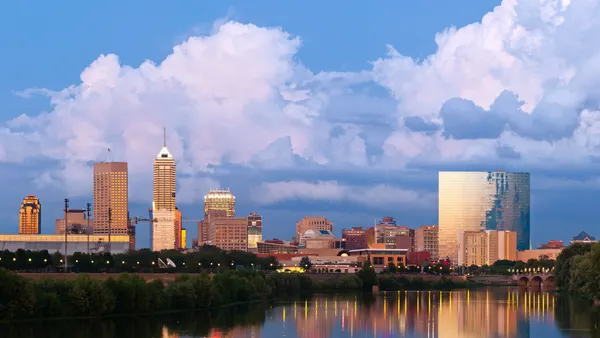Dive Brief:
- The U.S. hotel industry is expected to face obstacles that will hinder RevPAR growth next year, including competition from alternative lodging sources and a slower economy, according to CBRE’s U.S. Real Estate Market Outlook 2024.
- This latest outlook confirms CBRE’s projections from November, which reported that it expects RevPAR to grow 3% in 2024, supported by a 40-basis-point increase in occupancy and a 2.3% increase in ADR.
- The outlook also reinforces similar predictions from a PwC report that forecasted hotel performance growth will continue to decline in 2024 due to economic headwinds, geopolitical tensions and changing traveler behavior. But increased group travel and overseas visitors should bolster the industry in the new year, CBRE said.
Dive Insight:
CBRE’s latest outlook seems to reinforce other industry findings. For example, Accor recently reported that it expects its RevPAR growth to decelerate in 2024, “driven by mounting headwinds such as lasting inflation, depleted consumer savings and conflict in the Middle East, where around 10% of the company’s portfolio resides.”
But the U.S. industry could potentially benefit from roughly 4.7 million more overseas visitors projected for 2024, if international travel returns to 2019 levels, the CBRE report stated. The company predicted that Los Angeles’ hotel industry, in particular, will see more visitors from Asia, and a boost from the end of the Hollywood entertainment strikes.
Additionally, fewer Americans are expected to travel internationally, which is posed to benefit the domestic market.
Increased group travel and overseas visitors will benefit markets including San Diego; Washington, D.C.; Boston; and New York, which recently imposed greater restrictions on short-term rentals that could positively impact hotels.
According to the outlook, urban hotels are expected to outperform in 2024, while airport hotels will benefit from the increase in inbound international travelers. Resort properties are expected to see the slowest growth.
The report also notes that, during economic downturns, RevPAR usually “falls less and recovers more quickly in the upper-midscale chain scale than in other chain scales as guests trade down.”
“We expect this will be the case in 2024 as the U.S. experiences an economic slowdown,” the report said.
Because of a sluggish economy, CBRE predicts less hotel investment activity, with “trophy assets, newer select-service assets in markets with modest supply growth and hotels focused on group travel in markets with a solid mix of business and leisure demand” being the most attractive to investors.
Margins, profits and cash flows are also expected to fall due to wage inflation, higher food and beverage and non-operating costs, increased renovation costs and high interest rates.









